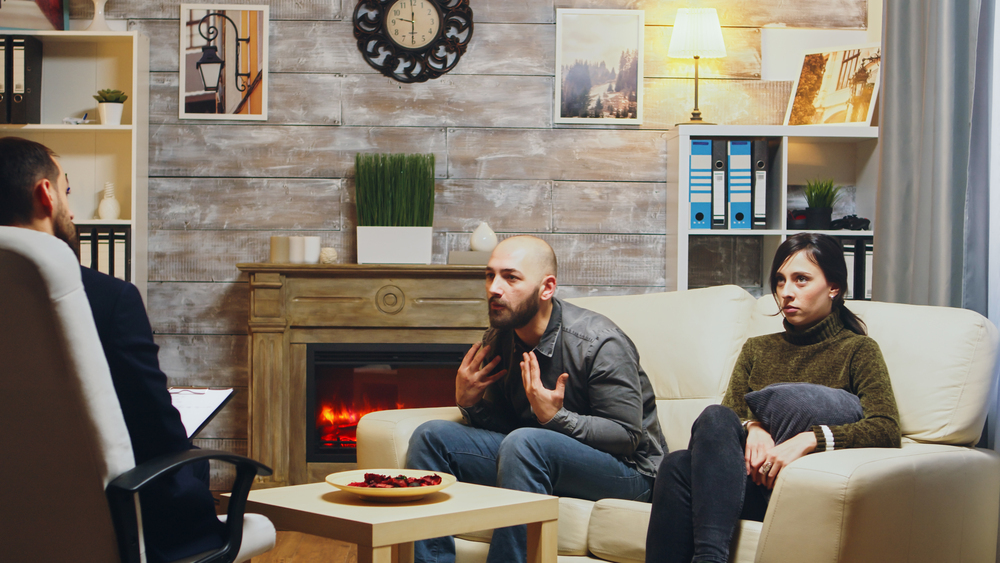When to Do Couples Therapy Alone (And When Not To)
In a relationship, we rely on our partners, especially during hard times. When challenges arise, we often want them to join us in therapy—to be part of the process and resolve problems together. However, sometimes a partner may refuse to attend couples therapy. If this happens, I recommend reading my article “5 Reasons Why a Partner Might Refuse Couples Therapy” to understand the reasons behind their refusal and how to address them.
But if your partner still avoids getting help, you’ll face a choice: go to therapy alone or not go at all.
Let’s explore common relationship issues—when you need your partner in couples therapy and what you can work on individually.
“Your husband spends all his free time gaming. Even when we’re together, you feel completely alone.”
“Your wife denies her drinking problem. She hides alcohol, and you don’t know how to help.”
Go alone.
Why?
Addiction requires you to adapt. Whether it’s alcohol, gaming, gambling, or porn, you need to learn how to live with an addicted partner—because they may not yet be capable of choosing the relationship over their compulsion. You need strategies to protect your well-being, regardless of their participation, and waiting for them to change first might lead to more frustration.
Similar issues:
“Your boyfriend follows and likes Instagram models’ posts. It makes you insecure, but he says you are overreacting.”
“Your husband is glued to his phone—even during meals, and you don’t feel like you matter.”
The last one is a bit tricky. It can be avoidance, in which case it makes sense to work on it together. It can also be addiction, in which case you might want to go alone first. In any case, if your partner actively avoids addressing the issue, they’ll likely avoid couples therapy too. In that case, start without them.
“After a decade together, your wife says she’s no longer in love with you but wants to stay for the kids.”
Go alone.
Why?
Because now you need to learn how to adapt to a painful truth, conserve your emotional strength for your children, and begin rebuilding your own life—regardless of what happens with the marriage. Only after this adaptation and reestablishing yourself in the changed relationship can meaningful dialogue and couples therapy have a chance.
Similar situations:
“Your husband won’t stand up to his controlling mom. She dictates your lives, and you can’t take it anymore.”
“Your boyfriend’s family disapproves of you due to cultural differences. He won’t defend you.”
While this may seem different, the core issue remains the same: you need autonomy—both from your mother-in-law’s interference and from the influence she exerts on your husband. This becomes about establishing firm boundaries, respecting them, and protecting them. Within these boundaries, you’ll need to decide how much contact to maintain with your partner’s family—and when you choose to distance yourself, don’t expect much support from your partner. Once you’ve established boundaries that make you feel better and safer, that’s when couples therapy becomes worth considering.
“Your wife had an affair. She ended it, but you still struggle with trust and you don’t know how to heal from this.”
“Your husband cheated three years ago. You stayed, but the pain still haunts you.”
Go alone.
Why?
It might seem counterintuitive, but you need time and space to grieve your old relationship. After cheating, the relationship as you knew it is over. Something new may eventually begin, but in the aftermath, the betrayed partner is left with raw, unfiltered pain. That’s why it’s often best to step back and grieve alone first. Only then can healing truly begin. With time, your conversations with your partner will improve, and your vision of the future will grow clearer.
“You’ve become roommates—no romance, just daily logistics, and you don’t know how to bring back the spark.”
Go together.
Why?
You’ve grown apart and now need to rebuild closeness through communication and active listening. To do this, both of you need to be fully present. In this situation—as in similar ones—one partner cannot carry the burden alone. Moreover, addressing this issue only in individual therapy often leads to the dissatisfied partner eventually leaving, as they may realize they’re unwilling to accept the lack of intimacy long-term.
Similar situations under this category:
“Your sex life has disappeared after 7 years together. Your husband says he’s too exhausted from work, but you miss being close.”
and
“Since having kids, your wife has no energy left for you, and you miss feeling like her partner, not just a co-parent.”
The same “go together” principle applies when there’s a lack of attention from your partner:
“Your husband is an amazing dad but a neglectful partner. You get whatever energy he has left for you.”
“Your partner never plans dates or surprises. You feel unappreciated, but they say you’re asking for too much.”
Attention isn’t a reward for effort or a measure of your worth. It’s an extension of active care—like a ‘yield’ sign. You can’t demand it; you can only accept it when offered. While you might adapt to minimal attention, this erodes your satisfaction in the relationship. In such cases, going together is your best choice.
There are many other examples that the constraints of this article won’t cover, but here are the guiding points.
Go together for communication problems, intimacy, and trust issues; when goals for the future are conflicting or too different; or when childrearing strategies collide. When you are unable to divide chores and responsibilities to your mutual satisfaction. When you are emotionally overwhelmed when talking to one another. When you both feel you want to discuss any issue together in therapy.
Go alone for addiction, abuse (often playfully presented as a joke), and refusal to engage. If your partner avoids acknowledging the seriousness of a situation, lacks willingness to put in effort, constantly postpones promises, or acts inconsistently with their words—these are strong signs you should go to therapy alone, as you need to focus on your healing and reestablishing your boundaries.
Published by author on Psychology Today: https://www.psychologytoday.com/us/blog/the-psychology-of-relationships-and-emotional-intelligence/202504/when-to-do-couples-therapy



